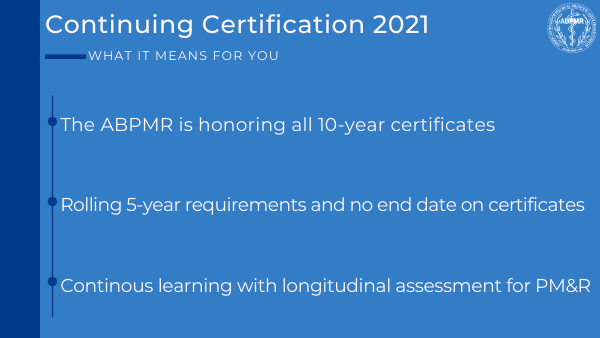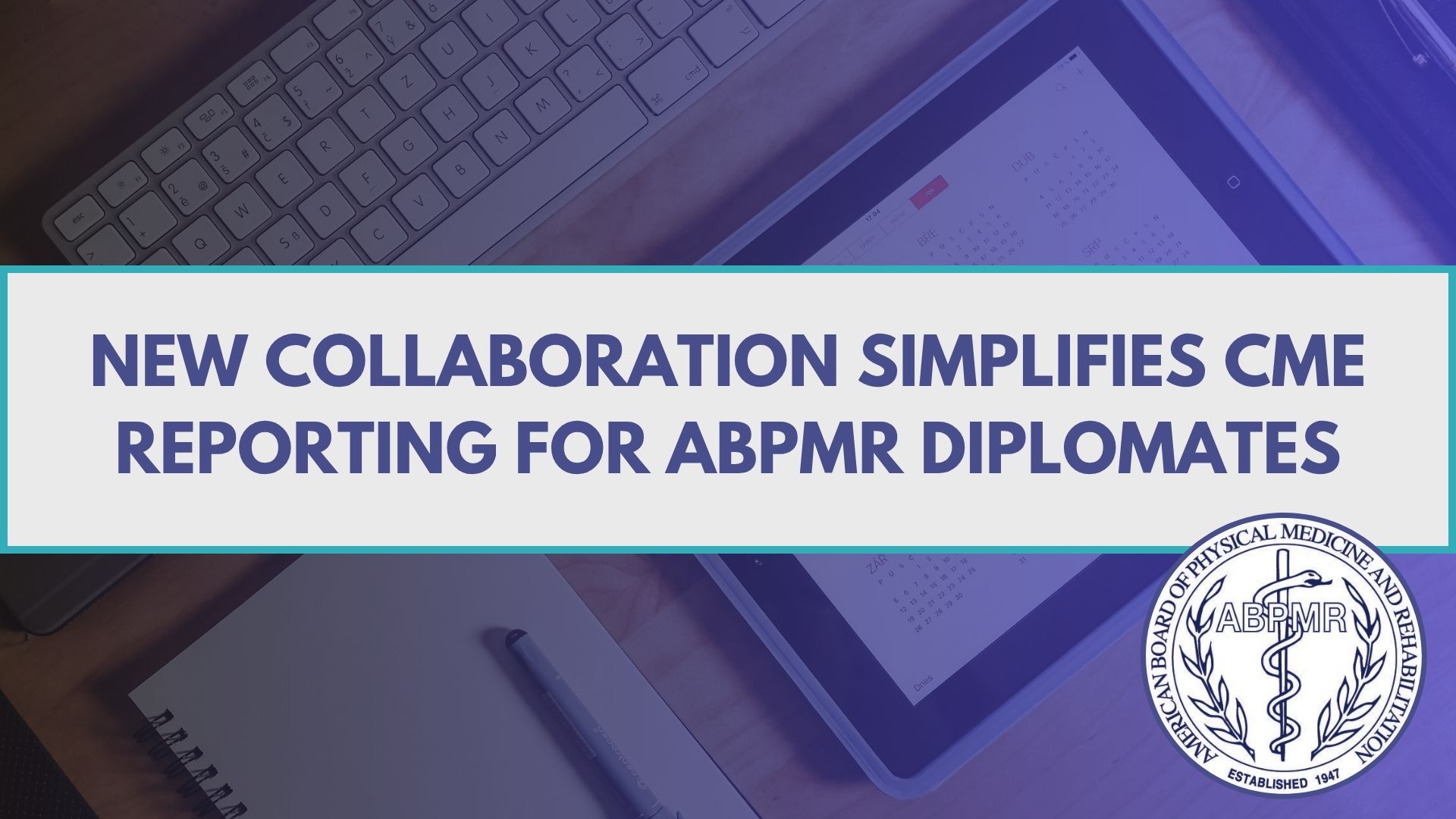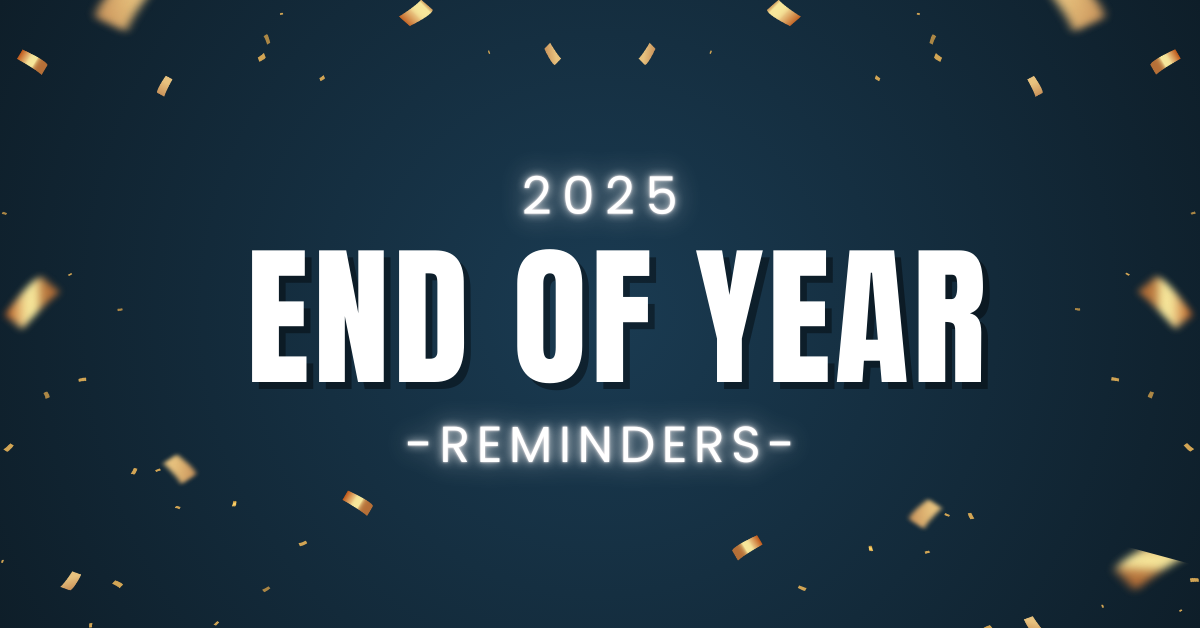CC
Continuing Certification 2021: What It Means For You

We know you’re always working to become a better doctor for your patients. Over the last several years, we have gotten feedback and made important changes to the Maintenance of Certification (MOC) Program in order to provide you the tools and a framework to partner with you in those goals.
That’s why we’re now making the transition from maintenance of certification and the MOC Examination to the Continuing Certification (CC) Program using longitudinal assessment for PM&R (LA-PM&R). We believe CC is a more meaningful, valuable, and relevant program; we hope you find it helps you to keep improving for your patients and in a real-world physiatric practice.
The Continuing Certification Program: Starting in 2021
The Continuing Certification Program officially starts in 2021 for newly certified diplomates and those recertifying into a new cycle (current expiration date of 2020). Each year upon initial certification or recertification, a new class of diplomates will enter the CC Program. The ABPMR is honoring all 10-year certificates in the transition to the Continuing Certification Program.
As we begin CC, we hope that the terminology, requirements, and even your certificate will help you think of your certification not in 10-year increments, but as an ongoing process that you can integrate with your clinical work and other improvement efforts in PM&R.
Time limits in CC: A five-year cycle
Understandably, the change to the 10-year certification has caused some concern and questions. The time limits within CC aren’t too different from the current MOC program, which is split into two five-year ‘milestones.’ The main timing difference is that now the five-year cycles are continuous, rather than cycling every ten years, in order to promote continued growth and learning.
The ABPMR is setting other continuing certification requirements— including professional standing, CME and self-assessments, and quality improvement— in five-year increments as well. Importantly, the five-year requirements in the Continuing Certification Program match almost exactly with the current ‘milestone’ requirements.
LA-PM&R: The transition to continuous learning
The second main difference in CC is that the MOC Examination has been replaced by LA-PM&R to implement shorter, more frequent, lower-stakes assessments. Unlike the MOC Examination, which measures what you know today, LA-PM&R scoring takes into account what you can learn with the ultimate goal of continually staying up to date for your patients. This is accomplished through sophisticated learning methods, allowing customization in your assessments to fit your needs and schedule, providing real-time analysis of knowledge gaps, and giving tools and resources for improvement.
There are many reasons the ABPMR is enthusiastic about the change to LA-PM&R, including that it directly addresses diplomate feedback on MOC including increased relevance and meaning, improved learning tools, and decreased burden. One of the most significant reasons is its evidence-based format of administering questions each quarter with spaced repetition—a truly continuous learning model. Aligning with the other CC requirements, you will receive a summative assessment on your LA-PM&R performance every five years—though you'll be getting feedback and opportunities to improve all along the way.
The ABPMR is here to help
Through this transition into CC and LA-PM&R, we are here for you every step of the way. Not only is the board responding to diplomate feedback on the relevance, meaning, and burden of CC requirements, but we are also dedicated to designing a program that provides valuable tools on your self-guided journey of continuous learning and improvement. We hope CC helps you get the most out of your certification, grow and learn in your practice and with your patients, and align the process of staying board certified with your needs. Please reach out if you have questions or concerns; we are here to make this a smooth transition for all diplomates.



